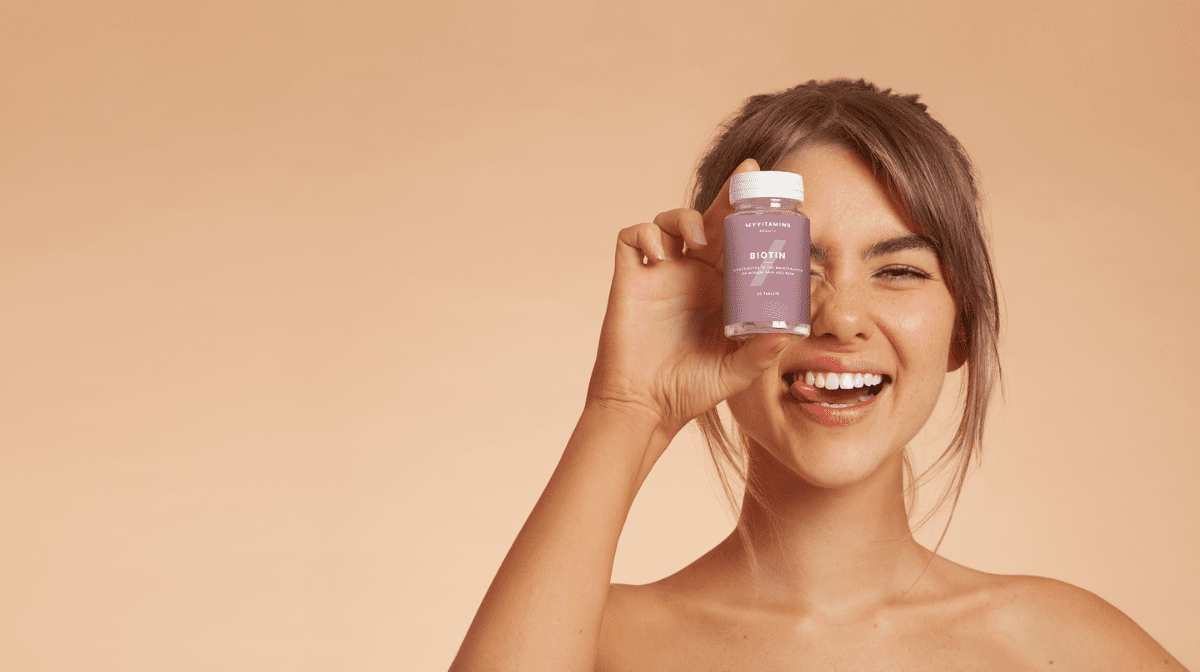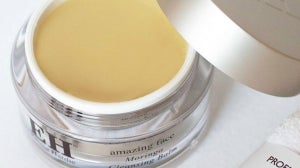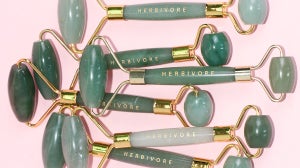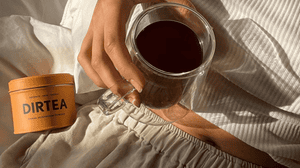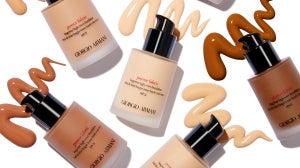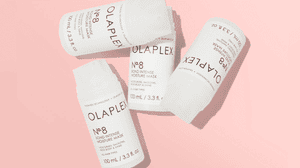
It's no secret that good skin, hair and nails come from good health. Though we may try and eat healthy (excluding recent Easter treats!), there are some vitamins that we just don't get enough of from food or may require that added boost through a vitamin tablet. We got the expert advice from Beth Addey, registered associate nutritionist, BSc, MSc on the best vitamins and supplements to take daily for glowing skin, shiny hair and strong nails.
How often should a vitamin supplement be taken?
"It’s always best to follow the instructions on your vitamin or supplement packaging in order to get the best results and reduce the risk of harm" warns Beth. "However, how often you take your vitamins depends on what exactly you’re taking. Water-soluble vitamins such as vitamins B and C are not stored in the body, so daily supplementation can be beneficial. Fat-soluble vitamins on the other hand, such as vitamins D and A, are stored in the liver, and over-consumption can lead to serious problems. Furthermore, many vitamins and minerals are available through a healthy, balanced diet, so supplementation may not always be necessary" she points out.
What are the benefits of taking a daily vitamin or supplement?
"Supplementing with vitamins can ensure you’re meeting your nutritional needs and taking care of your appearance from the inside out" says Beth. She explains that taking a supplement can enhance the benefits of your skincare: "targeted skincare regimes, such as the use of retinoids (vitamin A) and vitamin C for anti-ageing, hyaluronic acid for moisturisation and niacinamide for minimising acne and pore size can boost these effects further and protect your skin from harsh environmental factors such as pollution and UV damage. Combining inner nutrition with outer skincare helps to tackle the problem from all angles".
How to recognise a vitamin deficiency
"Any nutrient deficiency can display a variety of physical symptoms, such as dry/brittle hair and nails, hair loss, dry scalp, cracked lips, dry skin and slow-healing wounds" says Beth. "Side effects such as fatigue and lowered immunity may also be present" she adds. She advises seeing your GP about these symptoms if they are affecting your confidence or day-to-day life who can organise a blood test, or book in for a dietary assessment with a dietician or registered nutritionist.
Multivitamins vs targeted vitamins
With so many vitamin and supplement options now available, it can be hard to pick the right one, or narrow down the one you need, making multivitamins a great option to tackle a number of concerns at once. "Multivitamins contain a range of vitamins and minerals and are designed to make up for nutritional shortfalls within the diet, targeting various concerns" highlights Beth. "Each brand will contain different nutrients and different quantities of each, so it’s important to take a look at your packaging to work out what % of your recommended daily amount your particular multivitamin contains for each nutrient. However, if you have a varied and balanced diet, it’s likely a multivitamin will contain many nutrients you already consume enough of. Therefore, taking a look at your diet with a health professional can help you assess which individual supplements you may benefit from taking".
Are there any vitamin combinations that shouldn't be taken together?
"While some vitamin and mineral combinations work well together (eg. Vitamin C paired with iron to boost iron absorption), others can negatively affect absorption and hinder how our bodies utilise nutrients" warns Beth. "For example, vitamin C has been suggested to keep your body from using vitamin B12 so well. Likewise, mineral supplements (calcium, zinc and magnesium) should not be taken at the same time, as these nutrients may compete for absorption". Always make sure to follow professional advice when it comes to starting a new vitamin or supplement.
What is the best vitamin supplement for oily and blemish-prone skin?
"The B vitamins are fantastic all-rounders when it comes to skin health" says Beth. "Vitamin B12 in particular is a vitamin found in animal-based foods that has a wide variety of benefits and uses, including supporting the nervous system, mental and cognitive health, a healthy immune system and boosting hair, skin and nail health. Deficiencies in this vital vitamin can lead to acne-prone skin and hyperpigmentation, so supplementation can help reduce risk of deficiency and improve skin texture and tone, especially in vegetarians and vegans".
What is the best vitamin/supplement for dull skin?
For achieving that luminous look we all long for, Beth advises taking a vitamin C supplement. "Vitamin C is another skin care hero, with further benefits such as boosting collagen formation, supporting the immune system and reducing fatigue. Vitamin C fires up fibroblast cells within the skin which are involved in the production of collagen – the structural protein in our bodies that keeps skin smooth and youthful. Furthermore, vitamin C is an antioxidant. This means it can reduce the oxidative stress and free radical damage that may be associated with dull skin, leaving your skin brighter and smoother".
What is the best vitamin/supplement for ageing skin?
"Signs of ageing start to show on the skin from around the mid-20s onwards" explains Beth. "This can display as fine lines, sagging and dryness. Collagen peptide supplements have been suggested to replenish the collagen we lose through the ageing process, helping to plump out fine lines, improve elasticity, tighten skin, and even support healthy joints and strong bones. This area of research is largely novel but highly promising, with many studies supporting the claim".
What is the best vitamin/supplement for hair?
When it comes to shiny, full bodied locks, Beth's top supplement is biotin. "Biotin is another B vitamin (vitamin B7) associated with improved hair, skin and nail health. It’s available in foods such as eggs and milk, and can lead to hair growth, and thicker, shinier, healthier-looking hair through supporting keratin and hair follicle production. Biotin can also help boost your energy levels and support psychological wellbeing, meaning it’s a great supplement to keep you looking and feeling your best! Similarly to vitamin B12, vegetarians and vegans may benefit from implementing biotin as a supplement".
What is the best vitamin/supplement for healthy nails?
"Biotin can also work wonders for nail health, however other nutrients such as selenium can provide extra support. Selenium helps our bodies utilise iodine which is a vital nutrient for thyroid health. The thyroid gland is responsible for a range of processes, and an underactive thyroid may result in slow-growing, brittle nails. Selenium aids in the production of thyroid hormones to help keep our nails strong and smooth" explains Beth.
How long does it usually take to see results from a supplement?
As with anything related to health, vitamins and supplements are not a quick fix. Jess points out "following a micronutrient deficiency, it can take several weeks to replenish the insufficient nutrient within the body and notice a difference". Her top tip is to be consistent: "it’s important to take your supplements consistently, especially those water-soluble vitamins, in order to see the best results within a few weeks".

